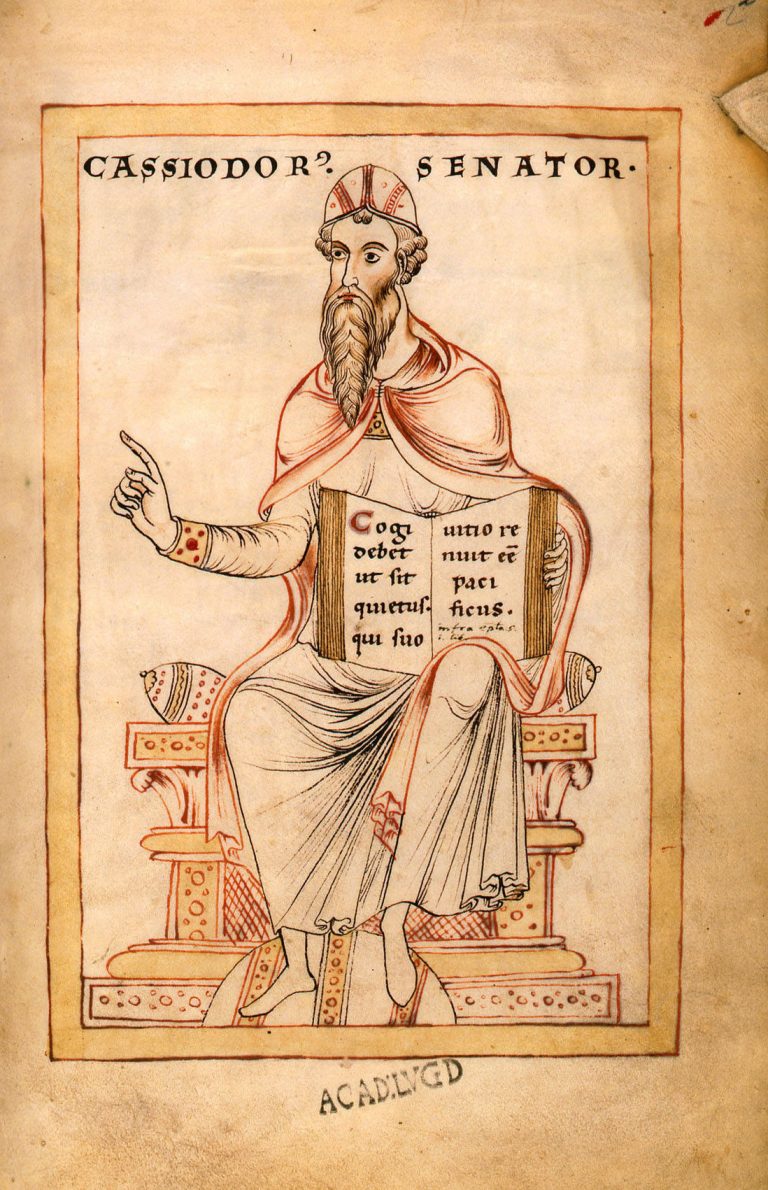Rev. José Mario O. Mandía
Anicius Manlius Severinus Boethius, born around 480, was a Roman scholar and statesman, Christian philosopher, and polymath. He “played an important role in transmitting Greek science and philosophy to the medieval Latin world. His most influential work is The Consolation of Philosophy. Boethius left a deep mark in Christian theology and provided the basis for the development of mathematics, music, logic, and dialectic in medieval Latin schools” (Manuel Correia, “Boethius.” Internet Encyclopedia of Philosophy. https://iep.utm.edu/boethius/).
Pope Benedict XVI adds that even the “manuals on arithmetic, geometry, music and astronomy” that Boethius wrote were all written “with the intention of passing on the great Greco-Roman culture to the new generations, to the new times. In this context, in his commitment to fostering the encounter of cultures, he used the categories of Greek philosophy to present the Christian faith, here too seeking a synthesis between the Hellenistic-Roman heritage and the Gospel message. For this very reason Boethius was described as the last representative of ancient Roman culture and the first of the Medieval intellectuals.” (General Audience, 12 March 2008).
Boethius was born to a prominent family but became an orphan as a child. Raised by the Roman aristocrat Quintus Aurelius Memmius Symmachus, Boethius mastered both Latin and Greek. He rose to prominence in the Ostrogothic Kingdom in Italy, becoming a personal adviser to the ruler Theodoric the Great.
He became unpopular, however, because of his criticism of the corruption among members of the Ostrogothic court. This led Theodoric to imprison him in 523.
He made use of his time in jail to write De consolatione Philosophiae (“On the Consolation of Philosophy”), where he argued that the true source of human happiness is the pursuit of wisdom and the love of God. Thus, even in prison, one can have joy and hope, because one can speak with God. “Through this work, De Consolatione Philosophiae, he sought consolation, enlightenment and wisdom in prison. And he said that precisely in this situation he knew how to distinguish between apparent goods, which disappear in prison, and true goods such as genuine friendship, which even in prison do not disappear. The loftiest good is God: Boethius – and he teaches us this – learned not to sink into a fatalism that extinguishes hope” (Pope Benedict XVI, General Audience, 12 March 2008). The book was widely reproduced and exerted great influence.
Eventually, Boethius was tortured and executed in 524, and is venerated as a martyr in the Diocese of Pavia which honors him on 23 October 524.
Aside from Boethius, there is another leading Christian scholar of the 6th century – Magnus Aurelius Cassiodorus Senator (c. 485 – c. 585). Cassiodorus was also a Christian Roman statesman like Boethius. He would also later become magister officiorum (“chief of the civil service”) under Theodoric.
Benedict XVI notes that Cassiodorus, like Boethius, “was a model of cultural encounter, of dialogue, of reconciliation. Historical events did not permit him to make his political and cultural dreams come true; he wanted to create a synthesis between the Roman and Christian traditions of Italy and the new culture of the Goths. These same events, however, convinced him of the providentiality of the monastic movement that was putting down roots in Christian lands. He decided to support it and gave it all his material wealth and spiritual energy” (General Audience, 12 March 2008).
Upon his retirement from public service, he founded a monastery, Vivarium (or “Castellum”), where he spent the last thirty years of his life. Unlike Boethius, he was not outstanding as a writer or scholar, “but his importance in the history of Western culture can hardly be overestimated. He collected manuscripts and enjoined his monks to copy the works of pagan as well as Christian authors; to this is due the preservation of many ancient authors’ writings, for his monastery set an example that was followed elsewhere in later centuries” (https://www.britannica.com/biography/Cassiodorus).


 Follow
Follow


